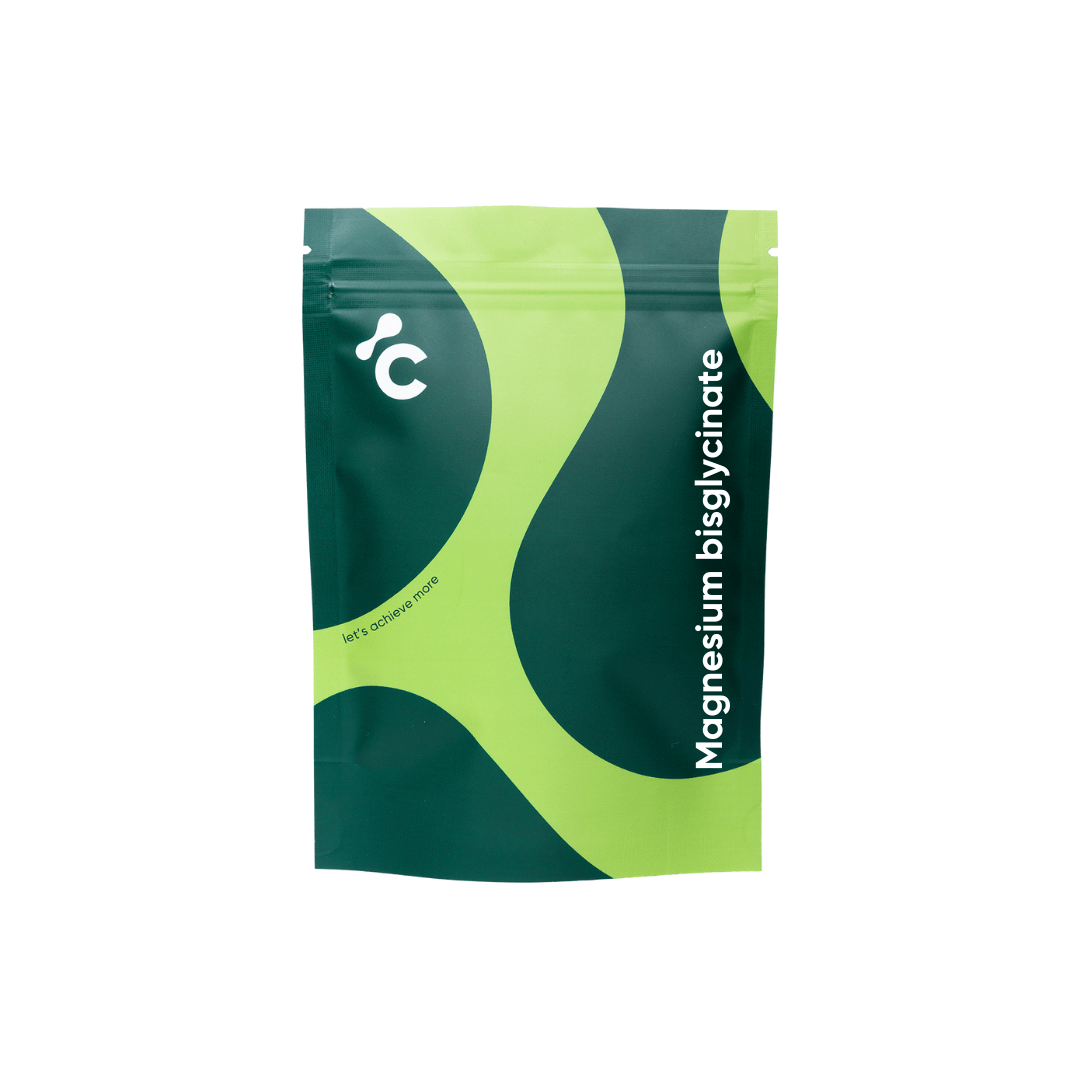Magnesium Glycinate vs Magnesium L-Threonate: Based on User Experiences

Many are turning to Magnesium Glycinate and Treonate, two popular supplements gaining attention for their potential benefits. Some users report using L-Thronate, while others find Glycinate supplements work better for them individually.
It’s important to note that while these supplements are widely available and commonly used, individual experiences may differ. What works for one person, may not work for another and it’s essential to approach supplementation with an open mind and awareness of personal health needs.
In this article, we’ll explore the user experiences surrounding Magnesium Glyciante vs Threoante, to understand why people use them, what benefits they seek, and the range of experiences shared by users in online communities, like Reddit and Quora as well as Dr LeGrand’s and Dr. Eric Berg’s opinions about these two supplements.
Table Of Contents
Article Methodology
Our research methodology for this article is straightforward and transparent:
- Data Collection: We focused on collecting real-world data by reading user feedback on forums dedicated to nootropics;
- Discussion Sources: We primarily sourced discussions from platforms like Reddit and Quora to capture a wide range of personal experiences and opinions;
- Expert Insights: Additionally, we explored YouTube channels of some of the most reputable doctors in the field, who share their professional opinions and experiences with these supplements. This allowed us to enrich our understanding with expert perspectives alongside user testimonials.
- Acknowledgment of Variability: We acknowledge that the experiences shared by users may vary and may not necessarily align with scientific consensus. Therefore, we encourage readers to approach this article as a source of experiential sharing rather than absolute truth;
- Transparency: All sources are openly provided for reference, ensuring readers can verify and explore the information further.
This methodology ensures a comprehensive and balanced view of the potential benefits and preferences associated with Magnesium Glycinate and Magnesium L-Threonate, making our findings both informative and reliable.
What is Magnesium Glycinate?
Magnesium is crucial for over 300 enzymatic processes in the body, including energy production via ATP, muscle and nervous system function, and DNA synthesis. Magnesium glycinate, scientifically known as magnesium bisglycinate, is a chelated form of magnesium where magnesium is bound to the amino acid glycine. This chelation process enhances the bioavailability of magnesium, allowing for better absorption in the body compared to other forms of magnesium. Glycine itself has calming properties, which may further contribute to the relaxing effects of this supplement.
What is Magnesium Threonate?
Magnesium threonate is a compound consisting of magnesium and threonate, a salt derived from vitamin C. This unique form of magnesium has gained attention for its potential to cross the blood-brain barrier more effectively than other magnesium supplements. As a result, it is believed to have a greater impact on cognitive function. Threonate is also thought to have antioxidant properties, which could further contribute to its potential benefits.
Overview of Users’ Experiences
Users typically compare magnesium glycinate and threonate based on their individual goals, such as improving sleep quality, reducing anxiety, or enhancing cognitive function. Some users may prefer glycinate for its calming effects, while others may lean towards threonate for its potential cognitive benefits. Overall, sentiments are mixed, with some users favouring one form over the other based on their specific needs and experiences.
For example, one user reported, “I’ve been using magnesium glycinate for years to help with sleep, and it works like a charm.” Conversely, another user mentioned, “I switched to magnesium threonate recently for its purported cognitive benefits, and I’ve noticed a subtle improvement in my focus.”
Key Benefits of Magnesium Glycinate vs Magnesium Threonate
Many users turn to magnesium supplements for various health benefits, with discussions often focusing on magnesium L-threonate and magnesium glycinate. These two forms of magnesium have garnered attention for their unique properties and potential advantages.
Magnesium Glycinate:
- Relaxation and Sleep Support: Many users find magnesium glycinate effective in promoting relaxation and improving sleep quality. It is often used as a natural aid for managing stress and anxiety, contributing to a calmer state of mind before bedtime. One of the users say, “Magnesium glycinate has been a game-changer for me when it comes to winding down in the evenings. I used to struggle with racing thoughts at night, but since starting this supplement, I’ve noticed a significant improvement in my ability to relax and fall asleep.”
- Stress Reduction: Users frequently report a reduction in symptoms related to stress, such as tension and nervousness. Magnesium glycinate’s calming properties make it a popular choice for individuals seeking relief from daily stressors.”I’ve noticed that on days when I take magnesium glycinate, I feel much calmer and more centred”
- Muscle Cramp Relief: Some individuals rely on magnesium glycinate to alleviate muscle cramps and spasms, particularly after physical activity or during periods of heightened muscular tension. “I’m an avid runner, and muscle cramps used to be a significant issue for me, especially after long runs. Since incorporating magnesium glycinate into my post-run routine, I’ve experienced far fewer cramps and recovered much faster.”
Magnesium Threonate:
- Cognitive Enhancement: One of the primary reasons users turn to magnesium threonate is its potential to support cognitive function and mental clarity. One of them noted, “I’ve been taking magnesium threonate for a few months now, and I’ve noticed a significant improvement in my focus and memory. It’s like my mind is clearer, and I’m able to stay more alert throughout the day.”
- Brain Health: Users believe that magnesium threonate may play a role in supporting long-term brain health, potentially reducing the risk of cognitive decline associated with ageing.
- Mental Alertness: Some individuals experience heightened mental alertness and sharpness after incorporating magnesium threonate into their daily routines. “I work in a demanding job that requires a lot of mental focus, and since I started taking magnesium threonate, I’ve noticed a significant improvement in my ability to stay alert and attentive throughout the day. It’s been a game-changer for my productivity levels.”
Taking Magnesium L-Threonate for 30 Days According to Dr. LeGrand
Dr. LeGrand shared his experience on his YouTube channel regarding the effects of taking magnesium threonate. He began the first week by adhering to the recommended dosage, taking three capsules daily, which totals 2,000 mg of Magnesium Threonate. During this initial week, he did not observe any noticeable changes. In the second week, he experienced slight improvements and noticed enhancements in his memory. In the subsequent week, he increased his dosage to four capsules per day to further assess its efficacy, observing modest improvements in his focus. By the last week, he had doubled his dosage to six capsules daily and reported significant improvements in both memory and focus. He mentioned that this regimen helped with his ADHD issues.
He also emphasised the importance of selecting easily digestible forms of magnesium, such as Magnesium Citrate or Magnesium Glycinate, which are highly absorbable. These forms are generally recommended to patients with potential magnesium deficiencies. For those aiming to boost cognitive performance, he usually suggests Magnesium Threonate, as it is particularly targeted towards enhancing cognitive output.
Taking Magnesium Glycinate According to Dr. Eric Berg
According to Dr. Berg, magnesium glycinate can be taken on an empty stomach or with food, which is a unique benefit as it does not require strong stomach acid for absorption. He recommends taking this form of magnesium right before bed, with typical doses ranging from 100 mg to 400 mg, to maximise its effects on sleep and relaxation.
Dr. Eric Berg also discussed the unique benefits of magnesium glycinate on his YouTube channel. This formulation is gentle on the stomach and does not typically cause diarrhoea, making it suitable for those with sensitive digestive systems.
Dr. Berg highlighted its benefits for overall relaxation, particularly muscle relaxation, which can enhance sleep quality and result in deeper sleep, thereby boosting daytime energy. Additionally, magnesium glycinate acts as a vasodilator, which is beneficial for blood pressure regulation. It also plays a role in calcium regulation, potentially reducing the risk of kidney stones, increasing insulin sensitivity, and alleviating stress.
How Do People Incorporate Magnesium Glyciante vs Magnesium Treonate?
Based on the discussions, people incorporate magnesium glycinate and threonate into their routines in various ways:
Magnesium Glycinate:
- Taken before bedtime to promote relaxation and support sleep. One user noted, “I take magnesium glycinate every night with 3mg melatonin. Helps a lot with relaxation and sleep.”
- Some users prefer dividing the dosage throughout the day to avoid gastrointestinal upset. Another individual shared, “Avoiding oxide and citrate will prevent the laxative effect. Nausea can be avoided by taking smaller divided doses or switching to a different form.”
Magnesium Threonate:
- Often used for cognitive health and mental clarity. Some individuals take it in the morning or throughout the day to support brain function. One user mentioned, “I believe threonate is the only form of magnesium that can cross the blood-brain barrier so it’s supposed to be better for mental health stuff like anxiety.”
Overall, user discussions highlight the diverse range of experiences and preferences regarding magnesium L-threonate and glycinate, emphasising the need for personalised approaches to supplementation.
Potential Side Effects According to Users
While magnesium glycinate and threonate are generally well-tolerated by many individuals, some users have reported experiencing certain side effects. These reported side effects offer insights into the potential drawbacks of these supplements and highlight the importance of monitoring one’s response to supplementation.
Magnesium Glycinate:
- Gastrointestinal Upset: A few users have noted experiencing gastrointestinal discomfort, such as bloating or diarrhoea, particularly when taking higher doses of magnesium glycinate. “I started taking magnesium glycinate to help with sleep, but I noticed that whenever I took a higher dose, I experienced some stomach discomfort and bloating. I had to adjust my dosage to avoid these side effects.”
- Fatigue and Drowsiness: In some cases, individuals have reported feeling unusually fatigued or drowsy after taking magnesium glycinate, especially if consumed in the evening.
Magnesium Threonate:
- Digestive Issues: A few users have mentioned experiencing digestive issues, such as nausea or stomach discomfort, shortly after starting magnesium threonate supplementation. “I was excited to try magnesium threonate for its cognitive benefits, but unfortunately, it didn’t agree with my stomach. I felt nauseous and bloated after taking it, which made it difficult to continue using it regularly.”
- Muscle Pain or Cramps: Rarely, individuals have reported experiencing muscle pain or cramps after taking magnesium threonate, although these side effects are less commonly reported compared to other forms of magnesium.
Conclusion
In conclusion, the comparison between Magnesium Glycinate and Magnesium L-Threonate highlights their unique benefits and suitability for different health goals based on user experiences. Magnesium Glycinate is widely praised for its ability to enhance relaxation, improve sleep quality, and reduce stress, making it ideal for those seeking physical and mental calm. On the other hand, Magnesium L-Threonate is favoured for its cognitive benefits, including enhanced focus, memory, and potential support for brain health, which is particularly valuable for individuals looking to boost their mental performance.
Disclaimer
It’s crucial to remember that the purpose of this article is to share user sentiments and experiences, not to provide medical advice. Before incorporating any new supplement into your routine, it’s advisable to consult with a healthcare professional, especially considering the individual differences and potential side effects associated with magnesium supplementation. Use supplements with caution and prioritise your health and safety above all else.
Sources:
https://www.reddit.com/r/Supplements/comments/1028m8g/magnesium_l_threonate_vs_glycinate/
https://www.quora.com/What-about-magnesium-L-Threonate-Is-it-better-than-magnesium-glycinate
https://www.healthline.com/nutrition/magnesium-types
https://www.sciencedirect.com/topics/nursing-and-health-professions/magnesium-glycinate





